Bare trusts are legal entities used to divide legal and beneficial ownership over a property. Under a bare trust arrangement, the sole duty of the bare trustee is to convey legal title to the trust property on demand and according to the instructions of the beneficiary who retains beneficial ownership. They are used in common law jurisdictions such as Canada, excluding Quebec, and the United States.
For most of our cross-border clients who own personal use property in the U.S., such as in Florida, we have from time to time recommended that their property be held in a hybrid structure known as a Cross Border Trust (“CBT”), which shares the characteristics of a bare trust. A CBT is in essence a type of bare trust while also being a revocable trust and a flow-through entity for U.S. purposes.
Traditionally, in Canada, a bare trustee or a CBT trustee were not required to file an annual trust income tax and information return (T3). Moreover, bare trusts and CBTs are not even considered actual trusts for the purposes of the Income Tax Act. Following the introduction of federal bill C-32, which came into force on December 15, 2022, bare trusts and CBTs are still not considered actual trusts under the Income Tax Act, but they are now subject to annual compliance obligations.
Beginning with taxation years ending on December 31st, 2023, trustees will be required to file an annual T3 return for bare trusts and CBTs. The filing deadline is 90 days after the end of the bare trust’s or CBT’s taxation year. However, bare trusts or CBTs set-up on or after September 30th, 2023 should be exempted from filing for 2023.
The T3 returns for bare trusts will also require the filing of schedule 15 (Beneficial ownership information of a trust), which will require the reporting of information about the bare trust’s or CBT’s stakeholders including trustees, beneficiaries, and settlors as well as any “controlling person”.
Failure to file a T3 return when required will result in a 25$ a day fine (minimum $100 and maximum $2,500). An additional penalty equal to the greater of $2,500 or 5% of the maximum value of the trust property may be imposed where failure to file was made knowingly or due to gross negligence.
If you or someone you know owns assets through a bare trust or CBT, we encourage you to communicate promptly with Levy Salis LLP to obtain an opinion on your obligation to file a T3 return and receive practical, bespoke advice.
The comments offered in this article are meant to be general in nature and are not intended to provide legal advice regarding any individual situation. Before taking any action involving your individual situation, you should seek legal advice to ensure it is appropriate for your circumstances.
About the author
Shlomi Steve Levy is a Partner of Levy Salis LLP and is a member of the Quebec Bar, the Law Society of Ontario (L3), the Society of Trust and Estate Practitioners, and the Canadian Bar Association.
Francis Hally is an associate with Levy Salis LLP and is a member of the Barreau du Québec. Prior to joining Levy Salis LLP, he practiced as an associate for a national Canadian law firm and as a tax manager for two Big Four accounting firms.




